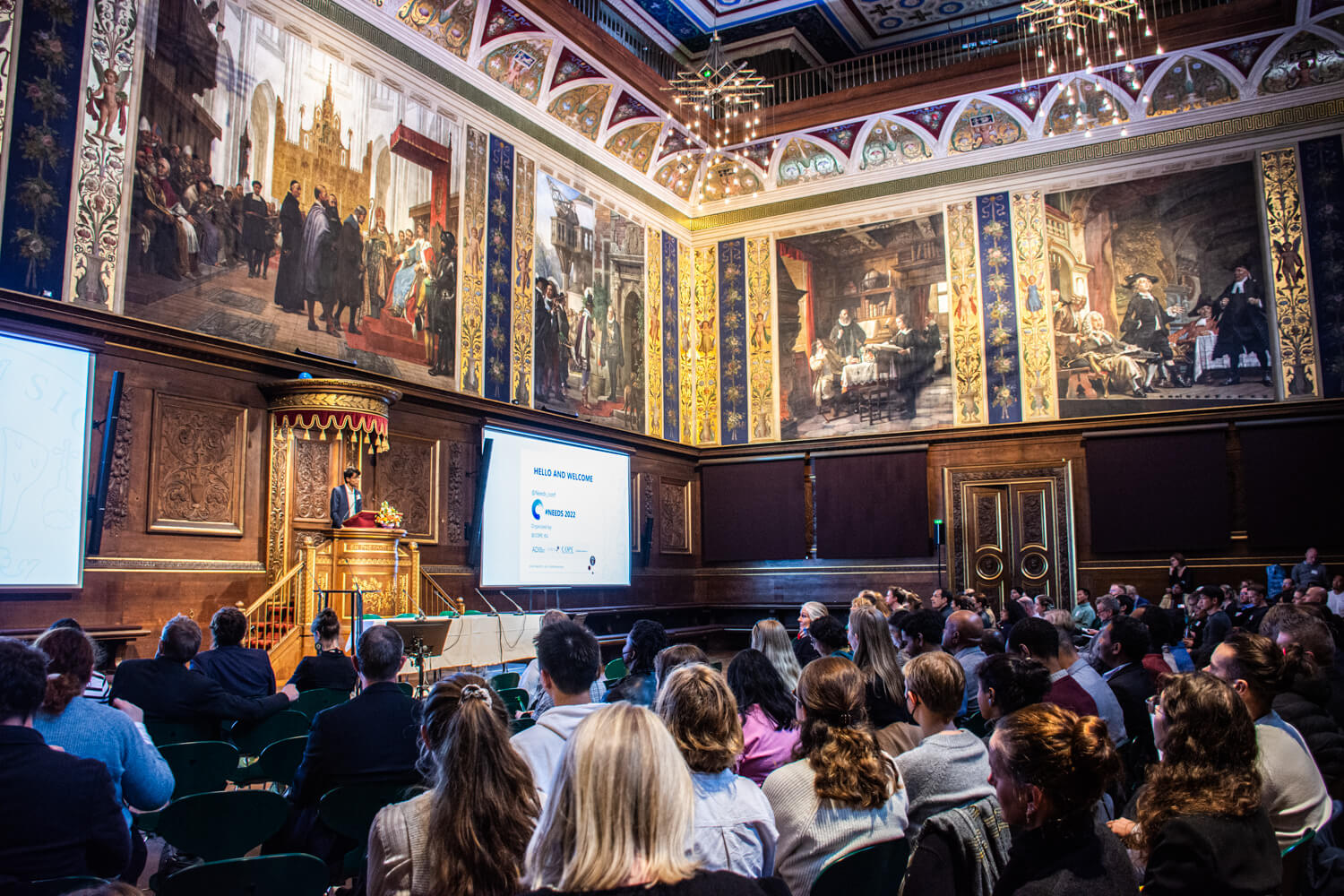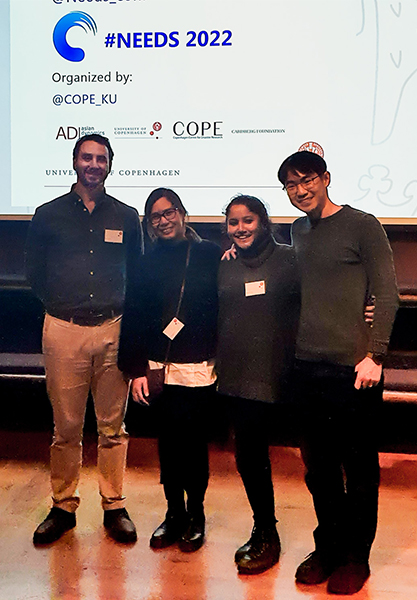Multiple Perspectives, Cultivating Communities: Reflections on the NEEDS 2022 Conference

Disaster Studies is a growing multidisciplinary field that continues to produce diverse – and often competing or contrasting – perspectives on how disasters are conceptualized and addressed. The Northern European Conference on Emergency and Disaster Studies (NEEDS) 2022 took place this November in Copenhagen and provided spaces for conversation around the current state of the field as well as for a collective (re)thinking about its future. The four of us (M, R, K, H) researchers from the International Institute of Social Studies (ISS), participated in the event and later started a conversation around things that caught our attention during the conference. Interestingly, but maybe not surprisingly, each one of us highlighted different issues and observations, which partly accounts for this piece’s richness and diversity. Below we share our reflections and, at the end, we present our reflections around the issues we have presented:
Multiple perspectives
Whether (de)emphasising the role of climate change in disasters was a contentious topic I (H) found in several presentations and discussions throughout the conference. The difference often led to the discrepancy in how to understand and approach to climate-related disasters. A more interesting feature was that when these differentiated arguments reached some agendas, for instance, inequality and social justice the difference became no matter. Regardless of the role of climate change, there are more essential agendas on disasters that most participants agree on. One participant said that “climate change is not a problem but a symptom” which is the idea I recently found in many articles and speeches. Putting a focus on the symptom can fuel debate ‘for debate’ in disaster studies although the attribution is still important to some disciplines. For this reason, setting (new) agenda should be more careful about constructive and critical disaster studies. As emphasised by many participants in the conference, who, where, and when the agenda is set is therefore what disaster scholars should take into consideration.
For me (K), there were three main things that stood out during the conference. First, the emphasis on acknowledging that there are multiple forms of knowledge that shape our understanding of and responses to disaster. While there are still many challenges to de-centering Eurocentric worldviews which are pervasive in both theory and practice (much of this was left open-ended), I believe that this conscious effort to create spaces for dialogue and engagement are vital for the future of disaster studies. I also valued the conversations that went on ‘behind the scenes’ where we talked about our work and continuing challenges as scholars in this field. This leads me to my second point: the need to share work on critical research methodologies in studying disasters. Especially with the circulation and uptake of the Disaster Studies Manifesto: Power, Prestige and Forgotten Values, there is a paucity of papers on methodology embodying the values of the Manifesto that provide concrete guidance in terms of their application. This was an expressed need especially among PhD and early career scholars whom I’ve had the pleasure to interact with. My third and last point is – and I am very pleased to have witnessed this – is the growing influence of feminist perspectives in studying disasters. The panel on gender and intersectionality in particular was a space to demonstrate the value of feminist approaches and I hope more conversations on this will continue to take place.
The part of the conference that I (M) found most interesting and fruitful was the one and half days before the conference, which was the PhD workshop. This workshop was for early career researchers and PhD researchers and was free of cost. About fifteen of us discussed, debated (quite a lot) and disagreed with each other and with our facilitators, on how and where Critical Disaster Studies must head from this point on. Amidst all the hullabaloo, what was most precious was the experience of sharing a space with young, passionate, and critically conscious researchers from across disciplines, studying disasters; which is why, many of us found a tribe that we could call our own and most importantly, belong to (although all of us are based in the Global north). This speaks closely to my second take-away, which is the beauty and significance of co-authoring works that we mutually believe in. Various fields that intersect at and with, critical disaster studies, encourage single authoring, especially for career building purposes. Yet, writing together on issues that are closer to us and critical to the reflexive growth of a very interdisciplinary field such as Disaster Studies is indeed a meaningful way to pursue new, shared ideas and unsettle old ones.
One of the things I (R) took away from the conference is the way in which disaster studies has begun to problematise and think about how to address complex crises and wicked problems, which include but are not limited to disasters, climate change, migration, wars, and financial crises. What caught my attention is that many presentations addressing these issues indicated the need to have a solution based on local realities, respecting, and considering the affected people. This may be a result of, and be related to, the strength of the Disaster Manifesto among those who attend the NEEDS conference, as much as the importance that local perspectives, including indigenous and first people narratives, have had in the last decades in disaster studies. Another thing that caught my attention regarding how to address these compound crises were presentations on what can (or can't) be done by the civil protection agencies. This seems to be a very Scandinavian and Nordic position and, given the number of presenters from those countries, the topic took a front seat, but also researchers from Germany and Australia addressed this issue.
Cultivating a community

The conference was a platform for many of us to congregate and un/re/learn multiple aspects of disaster studies. One of the most important aspects that were underlined throughout was the Disaster Manifesto. The manifesto anchors on critiquing the well-established, western approaches to studying disasters and disaster governance in non-western countries. Yet, as a people keen on critically interrogating disasters, we could not remain oblivious that the “we” of such global north-based conferences primarily belong to western universities based in Europe, U.S., Canada, U.K., and New Zealand and so forth. “We” are the people with the resources to congregate, deliberate and access the corridors of (academic) power to theorise. Therefore, to realise the manifesto, we must find ways to make such spaces more democratic and accessible. One way to do it is to subsidise or support researchers and scholars based in developing countries to join such critical spaces for the discipline – which was partially fulfilled by the organisers of this year’s edition of NEEDS.
As our reflections, the conference showed how diverse disaster studies is as a field, and beyond its multidisciplinarity, the various perspectives that can be found in each discipline or to address the same problems and situations. We all share, nonetheless, that these differences enriched our experience and that NEEDS conference shows to be, once again, a place to cultivate a sense of community between people working on disasters.
|
This blog post, research, and our conference participation was supported by the European Research Council (ERC) Horizon 2020 programme [Advance grant number 884139]. |
